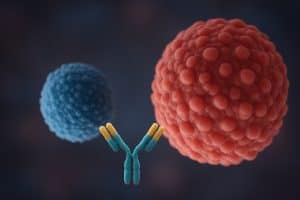
ASCO 2010: The Hedgehog Pathway and other ways to target cancer
pharmafile | August 19, 2010 | Feature | Research and Development | ASCO, Cancer, thyroid cancer
The American Society of Clinical Oncology conference, one of the most important dates in the pharmaceutical industry’s calendar, took place in early June in Chicago.
ASCO is the foremost congress for pharma and biotech companies and academic researchers to announce data from what they hope are ‘landmark’ clinical trials in cancer.
The five day conference is huge in scale – attracting around 30,000 delegates and abstracts from 4,000 studies posted on the ASCO website.
Dozens of new studies were published by pharmaceutical companies in during the conference, and the sheer number of trials on different cancers makes it difficult to pick out the potential breakthroughs from the crowd.
ASCO’s leaders highlighting six studies which illustrate the range of research being presented.
“Our growing understanding of cancer’s complex behaviour is being translated into better, more targeted drugs against a variety of tumours,” said Douglas W. Blayney, MD, President of ASCO, professor of internal medicine at the University of Michigan Medical School and medical director of the Comprehensive Cancer Center at the University of Michigan.
“These studies show that investment in cancer research pays off. We’re developing more personalised approaches to treating patients of all ages and across all cancer types, we’re learning how to use current treatments more effectively, and we’re identifying new ways to help patients live long, healthy lives following treatment.”
ASCO’s president-elect, George Sledge Jr, MD, Ballve-Lantero Professor of Oncology at the Indiana University School of Medicine warned, however, that more funding was needed.
“Clinical trials are essential to continued progress against cancer. Yet, the nation’s federally funded clinical trial system is at a breaking point,” adds Sledge Jr. “ASCO has called for a doubling of support for federally funded clinical cancer research within the next five years. We’ve made impressive strides against this disease, and it’s vital that the nation put more resources into these programmes to continue the momentum.”
The undisputed leader in new cancer treatments today is the partnership of Genentech and Roche, which has produced landmark drugs such as Avastin, Tarceva, Herceptin and MabThera/Rituxan.
Competition in oncology is now much more intense, however, and Roche’s scientists now have a huge challenge to stay one step ahead of competitors like Pfizer, GSK, Novartis and others.
Roche used ASCO to provide an overview of the new medicines in early-stage studies that it hopes will represent the next generation of cancer medicines. The combined Roche and Genentech oncology pipeline includes 22 new investigational medicines in clinical development of which five are expected to be submitted for approval by 2013. These include the therapeutic armed-antibody T-DM1, the new therapeutic antibodies pertuzumab and GA101, and novel molecules designed to target different mutations within cancer signaling pathways: RG7204 (mutated BRAF inhibitor) and GDC-0449 (Hedgehog pathway inhibitor).
“The molecules in Roche’s oncology portfolio result from our research philosophy of identifying the underlying causes of disease and following the science to deliver effective treatment options for people with cancer,” said Hal Barron, M.D., head of global development and chief medical officer for Roche.
“Data from our oncology pipeline molecules presented at ASCO demonstrate the strength of our approach, from novel therapeutic antibodies including T-DM1 and GA101, to a range of investigational medicines against the mutated pathways that cause cancer, such as inhibitors of mutated Raf and PI3 kinase.”
Roche’s next generation of antibodies
Antibody-drug conjugates – featured at ASCO 2010 was phase Ib/II data on the combination of T-DM1 and pertuzumab for advanced HER2-positive breast cancer. T-DM1 is a ground-breaking ‘armed antibody’ combining the therapeutic antibody, trastuzumab, with a cell-killing agent (DM1) delivered directly to the tumour. Roche and Genentech have 50 new armed antibodies in various stages of early research and development.
Glycoengineered antibodies – Roche and Genentech have also pioneered a technology (glycoengineering) that enhances the ability of a monoclonal antibody to induce an immune response against cancer cells.
Roche currently has several glycoengineered antibodies in development including RG7159 (GA101) for the treatment of B-cell malignancies (chronic lymphocytic leukemia and non-Hodgkin’s lymphoma) and RG7160 (GA201) that binds to Epidermal Growth Factor Receptor (EGFR) and has shown promising early results in treating colorectal cancer.
Roche at the forefront of novel cancer-cell targets
Mutations within pathways that normally control the growth, spread and survival of cells are common causes of cancer. Roche is investigating many targets within these mutated signalling networks, including Ras, Raf, MEK, Akt, PI3 kinase and the Hedgehog Signalling Pathway.
Sonic Hedgehog Antagonist GDC-0449 in Paediatric Patients with recurrent or Refractory Medulloblastoma:
One of the most memorably named of the emerging pathways being targeted in oncology is the so-called ‘hedgehog signalling’ pathway, which plays a key role in the formation of cells, and is implicated in the formation of numerous cancers. Roche and Genentech’s GDC-0449 (RG3616) is a small molecule inhibitor of the Hedgehog signalling pathway.
Hedgehog signalling is abnormally activated in certain types of cancers including colorectal, medulloblastoma (a type of brain cancer) and basal cell carcinoma (a type of skin cancer). It is thought that GDC-0449 may inhibit two types of overactive Hedgehog signalling: either within the cancer cell itself (caused by mutations in the pathway) or in surrounding cells (caused by over-expression of Hedgehog).
Genentech and Roche are collaborating with Curi on the drug across multiple tumour types and in combination with approved treatments.
Melanoma
New phase III data on BMS and Medarex’s ipilimumab suggests it could be a breakthrough in treating skin cancer.
Ipilimumab showed to improve overall survival in patients with unresectable stage III/IV melanoma for whom previous treatment had failed.
The monoclonal antibody was tested alone and combination with a vaccine, but to the investigators’ surprise, the best results were in patients only receiving ipilimumab.
The primary endpoint of the study was overall survival (OS). After 12 months, 46% of patients receiving ipilimumab alone, 44% receiving ipilimumab plus gp100, and 25% receiving gp100 were still alive. The hazard ratio (HR) for OS demonstrated a 32% to 34% reduction in the risk for death in the two ipilimumab arms compared with the vaccine arm alone.
Dr Steven O’Day, of the Angeles Clinic and Research Institute said: “This is an historic first – the first phase III randomised study showing improvement in median and long-term survival in patients with metastatic melanoma.”
Ipilimumab is a cytotoxic T-lymphocyte antigen 4 (CTLA-4), an immune therapy directed against T-cells, and was tested alone an in combination with the gp100 vaccine.
“These results are exciting because patients with melanoma have few treatment options,” Dr. O’Day said. “After 30 years of failed studies, we finally have an option that shows a significant increase in overall survival, an endpoint that many oncology studies strive for. This new class of inhibitors that overcome T-cell suppression offers hope to melanoma patients and oncologists alike.”
For patients with metastatic melanoma with few options, such as interleukin (IL-2) and dacarbazine, ipilimumab could become the standard of care, Dr. O’Day said.
Dr Vernon K. Sondak, of the H. Lee Moffitt Cancer Center & Research Institute, was equally optimistic about ipilimumab changing the current treatment landscape.
A large phase III, first line trial for patients with metastatic melanoma comparing ipilimumab 10 mg/kg combined with dacarbazine against ipilimumab alone has been completed. Final results from the study are due later this year.
If this trial also shows ipilimumab improves overall survival (in this case when added to ‘standard’ dacarbazine chemotherapy), the news will be of great consequence to physicians and patients alike because it will support the use of ipilimumab in the first line setting, Dr. Sondak said.
“We were not expecting that the vaccine might actually drag ipilimumab down,” Dr. Sondak said.
Physicians treating melanoma should be familiar with the side effects of therapy and how to manage them, he said. “Even at 3 mg/kg there were potentially life-threatening complications. Using ipilimumab requires a committed, multidisciplinary team at all times to address toxicity management,” he added.
Dr. Sondak said that for a disease that has had no documented improvement in survival over the past 30 years and with no new approved choices since [IL-2] over a decade ago, “ipilimumab is the light at the end of a long, dark tunnel”.
Thyroid cancer
AstraZeneca’s Zactima (vandetanib) will be filed with regulators later this year as a treatment for thyroid cancer after promising results.
The company has unveiled phase III results in patients with advanced medullary thyroid cancer (MTC), showing vandetanib significantly extended Progression Free Survival (PFS).
Medullary thyroid carcinoma is a rare form of the disease, representing only 5-9% of all thyroid cancers.
Patients on the trial showed a 54% reduction in the rate of progression compared to placebo. However, AstraZeneca says it is still too early to say if the drug can prolong the lives of patients with the disease.
The results are good news for the drug, which has been a disappointment against non-small cell lung cancer, a far more common condition.
Vandetanib is thought to work by blocking three pathways – vascular endothelial growth factor (VEGF), epidermal growth factor receptor (EGFR) and rearranged during transfection (RET).
“Patients with advanced medullary thyroid cancer currently have few or no options for treatment once they reach this late stage of their disease,” said Peter Langmuir, executive director of medical-science at AstraZeneca. “Given the results of this trial, we are moving quickly to file regulatory submissions for approval with the FDA and the EMA.”
ZETA was a phase III multi-centre study, evaluating oral once-daily vandetanib 300mg in 331 patients with unresectable, locally advanced or metastatic hereditary or sporadic medullary thyroid cancer and the presence of a measurable tumour. This was the first phase III trial with definitive results, carried out for patients with advanced MTC.
Significant differences for vandetanib compared to placebo were also observed in secondary endpoints of objective response rate and disease control rate – the response rate in patients receiving vandetanib was 45%. Patients receiving vandetanib also had a significant decrease in calcitonin and CEA biomarkers.
Ovarian
Roche’s Avastin took a step closer to winning an additional indication after phase III trial data showed the blockbuster cancer drug significantly improves progression-free survival in patients with ovarian cancer.
Data from the GOG 0218 showed that in combination with chemotherapy (paclitaxel and carboplatin) and then with continued use on its own for up to 15 months Avastin, showed a median progression-free survival (PFS) of 14.1 months.
This compared to 10.3 months in women who received chemotherapy alone – a 28% reduction in the risk of cancer progression or death.
Roche’s head of global development and chief medical officer Hal Barron said: “We are encouraged by these results as there have been few improvements in outcomes for women with this disease in the past decade.
“Avastin in combination with chemotherapy, followed by the continued use of Avastin, helped women with advanced ovarian cancer live longer without their disease worsening.”
Barron added: “We will discuss these data and next steps with US and global regulatory authorities.”
The study involved over 1,800 women with previously untreated advanced epithelial ovarian, primary peritoneal or fallopian tube carcinoma who already had surgery to remove large sections of the tumour. Currently, treatment options for women with the disease are limited to surgery and chemotherapy.
Lung Cancer
A new targeted treatment for non small cell lung cancer has produced spectacular results in a sub-group of patients.
Pfizer’s crizotinib is in a new class of drugs that inhibit the ALK gene, which is thought to play a key role in a sub-set of non small-cell lung cancer (NSCLC) tumours.
Crizotinib produced a 90% response rate in NSCLC patients whose tumours had a rearrangement of the ALK gene, and who had failed two previous chemotherapies.
The phase II results were presented at ASCO and generated considerable excitement.
“This is stellar, compared with what we see in non selected NSCLC patients treated with chemotherapy,” said principal investigator Dr Alice Shaw, a thoracic oncologist at the Massachusetts General Hospital Cancer Center in Boston.
“This response rate is unprecedented in lung cancer,” Anil Potti, MD, associated professor of medicine at Duke University in Durham, North Carolina, told Medscape Oncology.
“This is a huge success for biomarker-driven clinical trials,” he added, saying he hoped the results would make tumour type tests the norm, and signal an end to testing drugs in unselected patient groups.
Crizotinib is now entering a phase III trial and a central laboratory is carrying out the lung cancer tissue genotyping.
The study was presented by Yung-Jue Bang, MD, from Seoul National University College of Medicine in Korea.
It was conducted in 82 patients with NSCLC who had the ALK fusion gene and who had progressed on previous chemotherapy regimens (a median of three).
More than 90% of patients showed tumour shrinkage, and responses lasted up to 15 months, and patients had a 72% probability of being progression-free at six months.
A phase III trial (PROFILE-1007) has already begun that is comparing crizotinib to standard second line chemotherapy.
Brain
A small Phase I study on a novel targeted agent for children with drug-resistant medulloblastoma shows early indications of therapeutic benefit, with at least one patient remaining on the treatment for an extended period without disease progression. The drug, GDC-0449, targets the ‘sonic hedgehog pathway,’ which has been associated with 20% of medulloblastomas, as well as other cancers.
Early stage trials of a new treatment for the brain cancer glioblastoma multiforme have shown promise.
ICT-107 is being developed by US biotech company ImmunoCellular Therapeutics, and works by stimulating the body’s own immune system to identify and attack the cancer cells.
New treatments for glioblastoma multiforme (GBM) are particularly needed, as it remains one of the hardest to treat cancers and patients have a poor prognosis.
The phase I clinical trial of ICT-107 in glioblastoma multiforme involved newly diagnosed patients receiving the vaccine in addition to the standard of care of surgery, radiation and chemotherapy.
The results show a one year overall survival of 100% and a two year survival of 80%. This compares favourably with historically 61.1% one-year and 26.5% two-year survival based on the standard of care alone.
The median overall survival has not yet been reached at the 26.4 months analysis point, with 12 out of 16 patients alive (75% percent).
Breast Cancer
Eisai’s Eribulin has shown promise in increasing overall survival rates in heavily pre-treated breast cancer patients.
The phase III data shows that Eribulin met its primary endpoint by increasing overall survival of 13.25 months over 10.65 months – a median of 2.5 months.
Eribulin has been trialed on female metastatic breast cancer (MBC) patients as a monotherapy who have had between two and a maximum of five chemotherapy or cancer treatments to which the patient remains refractory.
Lead investigator and professor of clinical cancer pharmacology and oncology from the University of Leeds Dr Chris Twelves told Pharmafocus: “Unlike Herceptin and Avastin, Eribulin is highly active as a single agent.
“The prolonged survival we saw has not been seen previously in such heavily pre-treated patients with any other cancer drug (including Herceptin and Avastin). In the future, Eribulin may be combined with either Herceptin or Avastin.”
The drug is derived from Halichondrin B, an extract from a marine sponge, and acts on microtubules that are the scaffold the cell uses when dividing. Other cancer drugs such as taxanes also target this area, but Eribulin binds in a unique way that helps ‘kill’ cancer cells in a way other microtubule drugs cannot.
The EMBRACE trial was an open-label, randomised, multi-centre study of 762 patients with locally or recurrent metastatic breast cancer. Eribulin’s side effects were similar to other chemotherapy drugs but caused less damage to the nerves than other microtubule-targeted drugs.
The results of the trial showed that women with HER2 negative or positive, and ER positive or negative and triple negative MBC could all benefit from Eribulin at a late stage in the disease.
A second, large trial has already completed recruitment comparing Eribulin to Roche’s Xeloda (capecitabine) in women with less heavily treated breast cancer. “Colleagues are already discussing how and when we can evaluate Eribulin earlier in the course of the disease.” Eisai has submitted the drug in Japan, the US and the EU, and last month the FDA granted it priority review status.
Lymphoma, Myeloma, Leukaemia
The phase III international PRIMA trial has found that two years of MabThera/Rituxan (rituximab) ‘maintenance’ therapy reduced the risk of follicular lymphoma recurrence by 50% in patients who responded to initial chemotherapy.
Lenalidomide Maintenance Therapy Slows Myeloma Progression – results from an interim analysis of a phase III trial showed that maintenance therapy with lenalidomide (Revlimid) slowed disease progression by 54% among patients with multiple myeloma who had prior high-dose chemotherapy and an autologous stem cell transplant.
Sprycel more effective than Glivec for new CML – a Phase III study presented at ASCO found BMS’ Sprycel (dasatinib) to be superior to the standard first line drug, Novartis’ Glivec (imatinib) for bringing about cytogenetic and molecular responses in patients newly diagnosed with chronic myeloid leukaemia (CML).
Click here to visit InPharm’s industry pipeline in oncology
Andrew McConaghie
Related Content

Central nervous system cancer metastases – the evolution of diagnostics and treatment
The current forms of immunotherapy, how T cell therapy works and what the future holds

BioMed X and Servier launch Europe’s first XSeed Labs to advance AI-powered antibody design
BioMed X and Servier have announced the launch of Europe’s first XSeed Labs research project, …

T-cell therapy – the evolution of cancer treatments
The current forms of immunotherapy, how T cell therapy works and what the future holds






